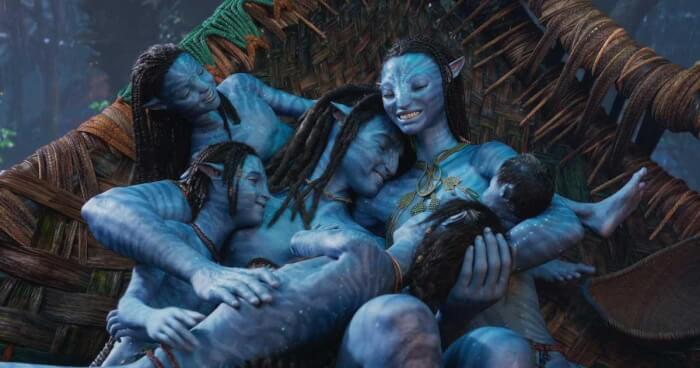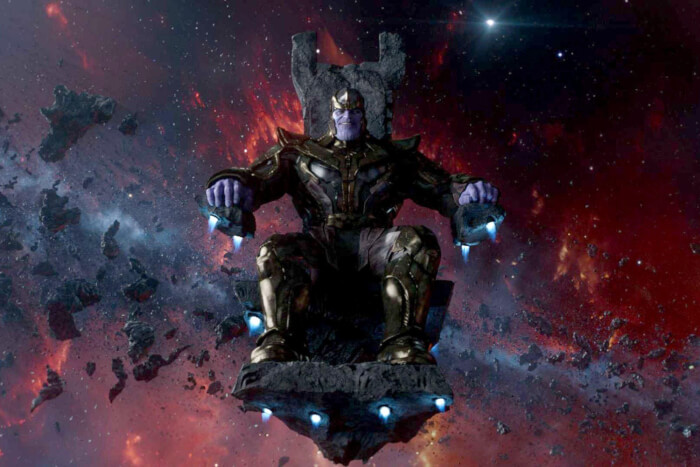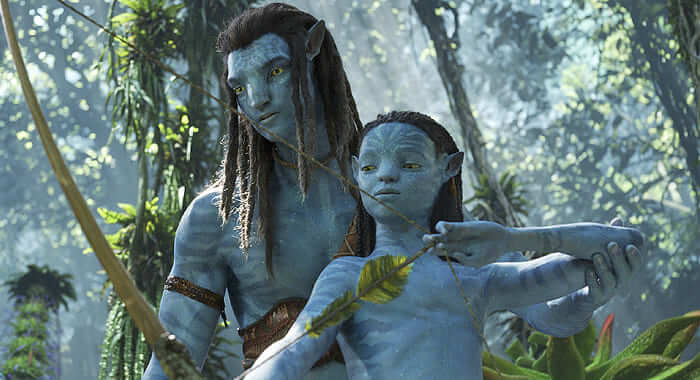James Cameron Says Avatar: The Way of Water Will Not Be Another Superhero Franchise
With its imaginative depiction of an alien planet, Avatar: The Way of Water succeeded in capturing the attention of its audience, but that isn't all. James Cameron, the writer, and director of the movie claimed that he also placed a lot of focus on giving his narrative a sense of realism by demonstrating how common people struggle with everyday problems while defending their homes. This distinguishes Avatar: The Way of Water from other superhero-themed series and offers it a distinctive appeal. In contrast, Cameron contends that his series is more grounded in reality because it addresses topics that are relevant to us all right now.

While he enjoys superhero films, James Cameron stated in an interview with TheWrap that he deliberately designed Avatar: The Way of Water and its next three sequels to have more relevant problems for the characters.
“They’re not extraordinary problems. They’re not going up against some guy that’s trying to conquer the galaxy. They have real problems. And I’m not dissing superhero Movies. I love ‘em, they’re our modern myths and legends, they’re the Greek gods fighting. We love all of that stuff, but that’s not the movie I wanted to make.”

Cameron talked about the worldwide appeal of Avatar while emphasizing that he has no problem with superhero movies. He pointed out that Avatar's capacity to connect with its viewers in a really novel way was what gave the film its unparalleled level of success. Although the movie fared very well domestically in the United States, three-quarters of its revenue came from outside the nation, perhaps as a result of its themes of family and relationships, which are timeless.
Cameron has a history of stretching the limits of cinematic storytelling, and his most recent work is no different. In order to create the main narrative, which centers on Jake Sully (Sam Worthington) and Neytiri (Zoe Saldana) as they attempt to balance their obligations to their family with those they have to their people and community, the author drew on both his own personal experience as a teenager and later as a father.

“Now, I can’t speak to their individual sort of cultural guardrails on that, how that works, I can only speak to my own experience having been on both sides of the equation as a teen that people didn’t understand – I mean, first of all, all teens feel like they don’t belong, they don’t fit, but if you’re an artist in a very jock-y high school, you get beat up a lot, and you look for the other misfits, My dad didn’t get me. My mom did because she was an artist.”
“And then living the other side of that as a father of five and seeing how my kids struggled in their different ways, all in different ways because they’re all different people, so that was all great grist for the mill. You put that all on this fantastic planet with all these amazing vistas and all that, but it grounds it right down and says these are real people. They may be nine feet tall and blue with cat tails, but they’re real people because they feel real. The problems that they’re facing are real.”
Through this perspective, Cameron crafts a very potent tale of self-discovery, tenacity, and familial values, providing spectators with an exciting study of challenging but the important subject matter.
While he enjoys superhero films, James Cameron stated in an interview with TheWrap that he deliberately designed Avatar: The Way of Water and its next three sequels to have more relevant problems for the characters.
“They’re not extraordinary problems. They’re not going up against some guy that’s trying to conquer the galaxy. They have real problems. And I’m not dissing superhero Movies. I love ‘em, they’re our modern myths and legends, they’re the Greek gods fighting. We love all of that stuff, but that’s not the movie I wanted to make.”
Cameron talked about the worldwide appeal of Avatar while emphasizing that he has no problem with superhero movies. He pointed out that Avatar's capacity to connect with its viewers in a really novel way was what gave the film its unparalleled level of success. Although the movie fared very well domestically in the United States, three-quarters of its revenue came from outside the nation, perhaps as a result of its themes of family and relationships, which are timeless.
Cameron has a history of stretching the limits of cinematic storytelling, and his most recent work is no different. In order to create the main narrative, which centers on Jake Sully (Sam Worthington) and Neytiri (Zoe Saldana) as they attempt to balance their obligations to their family with those they have to their people and community, the author drew on both his own personal experience as a teenager and later as a father.
“Now, I can’t speak to their individual sort of cultural guardrails on that, how that works, I can only speak to my own experience having been on both sides of the equation as a teen that people didn’t understand – I mean, first of all, all teens feel like they don’t belong, they don’t fit, but if you’re an artist in a very jock-y high school, you get beat up a lot, and you look for the other misfits, My dad didn’t get me. My mom did because she was an artist.”
“And then living the other side of that as a father of five and seeing how my kids struggled in their different ways, all in different ways because they’re all different people, so that was all great grist for the mill. You put that all on this fantastic planet with all these amazing vistas and all that, but it grounds it right down and says these are real people. They may be nine feet tall and blue with cat tails, but they’re real people because they feel real. The problems that they’re facing are real.”
Through this perspective, Cameron crafts a very potent tale of self-discovery, tenacity, and familial values, providing spectators with an exciting study of challenging but the important subject matter.
Share this article
Advertisement